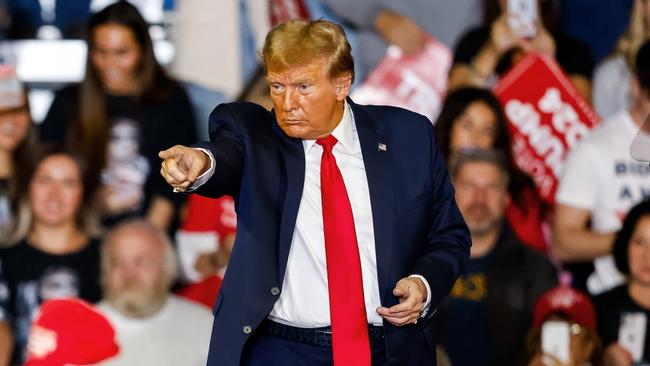
Any Trump selling out to Putin would probably constitute the most abrupt and consequential betrayal by the US of another nation since World War II. The implications would extend far beyond Ukraine because the US alliance system, across the world, rests on the credibility of deterrence and US military resolve.
With no US troops in Ukraine – unlike its debilitating troop commitments to Vietnam and Afghanistan – any US withdrawal of support would represent a decisive shift in American values and global policy untouched by combat deaths. The argument being mounted by pro-Trump Republicans in congress – willing to sacrifice Ukraine for their own domestic benefit – is that aid to Ukraine “puts America last”.
This is Trump’s benchmark – his excuse for every appeasement. Just days ago Trump boasted that as president he told a NATO leader who was “delinquent” in defence spending that not only would he “not protect you” but he would encourage Putin’s Russia “to do whatever the hell they want”.
This is just juvenile showing off. But it reflects core Trumpian beliefs. Of course, Europe should spend more. Having a US president who boasts about encouraging an autocratic leader to aggression against a US ally only deepens the alarm that Trump might be more dangerous the second time.
It is no surprise The Wall Street Journal editorialised that Trump’s remarks about inviting Putin to invade “is the reason many Americans won’t vote for him again even against a mentally declining President Biden”.
Deciding whether Joe Biden’s mental lapses or Trump’s strategic isolationism is the greater threat to the world is a straight no contest. Trump is a political criminal – witness his refusal to accept his election defeat – as well as a threat to the system of US-led collective security.
Selling out Ukraine would accentuate fears that Trump has no stomach for strategic resolution from the Middle East to the Taiwan Strait. CIA director Bill Burns says Putin bets that time is on his side and that “he can grind down Ukraine and wear down its Western supporters”. Burns says putting 5 per cent of the US defence budget to Ukraine is a cost-benefit winner sure to strengthen Ukraine’s hand in peace negotiations.
With $US60bn ($92bn) of aid to Ukraine under threat in the congress, US Senate Intelligence Committee chairman Mark Warner said: “If we don’t get this done, frankly, I’m not sure any nation state, friend or foe alike, will ever trust America again.”
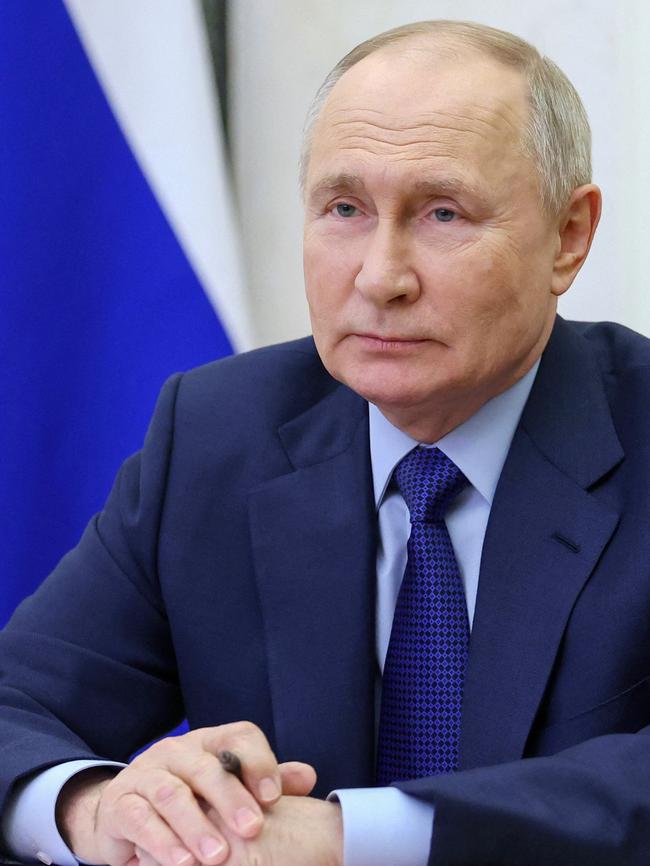
Former US defence secretary Robert Gates said in Foreign Affairs: “The United States now confronts graver threats to its security than it has in decades, perhaps ever. Never before has it faced four allied antagonists at the same time – Russia, China, North Korea and Iran – whose collective nuclear arsenal could within a few years be nearly double the size of its own … The problem, however, is that at the very moment that events demand a strong and coherent response from the United States, the country cannot provide one.”
Putin is now playing American public opinion, keen to prove the belief held by himself and China’s Xi Jinping that the US is in “irreversible decline” with a polarised nation lacking moral resolution and looking to isolationism and military pullback.
The Albanese government will face a fraught and dangerous experiment in dealing with Trump if he prevails at the election. Every Labor interest will favour Biden. If Trump returns to the White House, however, it would be a mistake to entertain catastrophic scenarios about the US alliance.
The alliance over 70 years has displayed its resilience. It transcends individual leaders given there have been many disputes between presidents and prime ministers. Trump likes Australia; that must help. But his deepest instincts pose a potential risk.
Trump distrusts the collective security principle – that allies defend each other – underpinning US alliances. He is hostile to free trade, a principle essential to Australia’s prosperity. He has a susceptibility to autocrats, fuelled by a deluded faith in his capacity to negotiate a better deal from them.
Trump will come as an unpredictable, volatile and potentially disruptive senior alliance partner for Anthony Albanese. How will they connect? The risk is Trump will see Albanese as a climate change, high tax, government intervening, pro-trade union, renewable energy and identity politics warrior, the type of politician he has loathed and fought against in the US to “make America great again”.
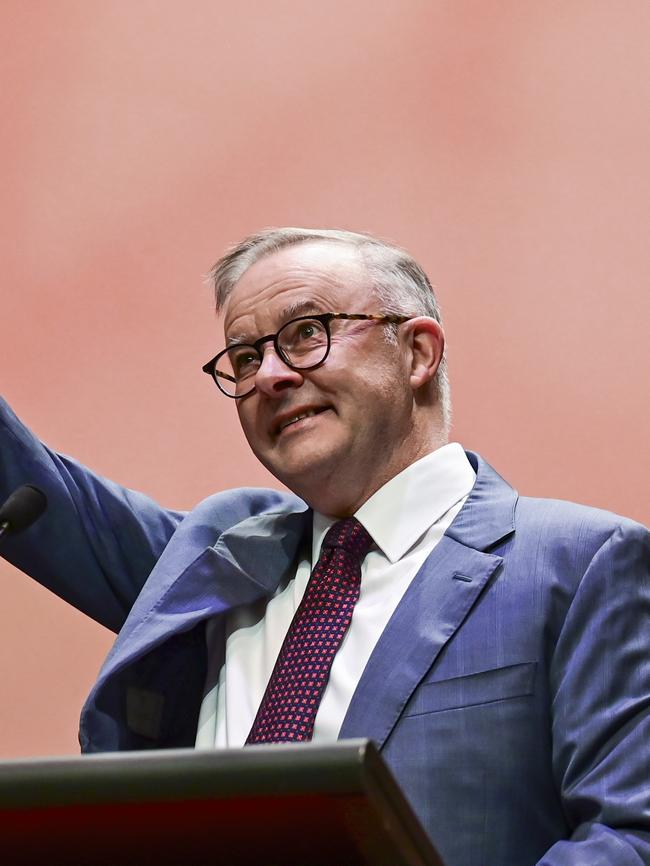
This is how Trump thinks. He sees historical ties as bunk. He makes instinctive, personal, often brutal judgments about leaders – and sticks by them. Trump will decide whether he likes Albanese. Australia’s success in dealing with Trump over 2016-20 came under a Coalition government. Anyone who thinks this was not a difficult challenge for Malcolm Turnbull and Scott Morrison knows nothing about the US relationship in this period.
Indeed, one of the underrated achievements of the Coalition era arose from the management Turnbull and Morrison applied. With Turnbull, things nearly unravelled; witness the infamous Trump-Turnbull phone call over refugees, one of the most dangerous conversations in the history of US-Australian relations. Turnbull felt during that conversation his political future was virtually on the line.
Morrison grasped the essence of Trump: “Donald knew one thing about you,” Morrison said. “And that’s what defined your relationship with him.” This was the vital point of connection. And with Trump, the point of connection is essential; any leader needs it. In the end Trump saw Turnbull as a fellow business deal maker, one of his breed.
When they met in New York, Trump joked to Melania about how Turnbull had sold him down the river on a terrible deal, the refugee deal. But all was now forgiven, they understood each other, it was about business. During their bilateral talks they discussed Kerry Packer and rich mates.
Morrison understood. “After I won the election in 2019, he wouldn’t leave it alone,” Morrison said. “Trump was one of the first to ring me. He was just over the moon.” Trump identified with Morrison – he saw Morrison as a fellow disruptive conservative beating the progressive establishment. This was Morrison’s point of connection. “He’s (Morrison) gone and won an election against the odds, just like I did,” Trump told the startled leaders at an international meeting in mid-2019. Their bond was sealed. And Morrison played along.
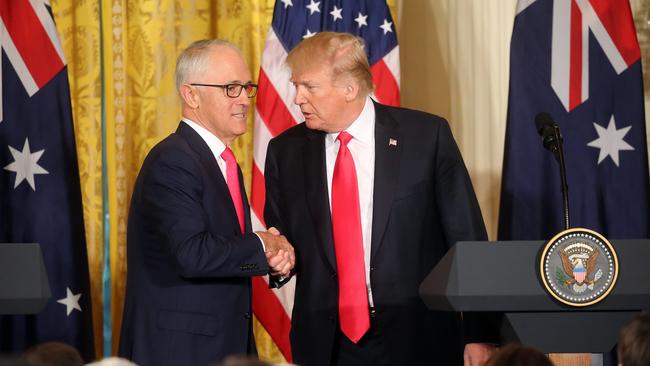
But there was a golden rule. No public criticism of Trump – work the Trump administration under and around Trump but never succumb to the temptation to criticise an unprincipled president. Trump has a glass jaw and a big mouth – that’s double trouble for the Albanese government.
Under Turnbull and Morrison, ministers and MPs were largely disciplined in keeping silent at Trump’s provocative policies and reckless rhetoric. That will be far harder for a Labor government. Trump as president will become a public target for the Greens, the progressive left and for much of the Australian media. His behaviour will justify such criticism. He will be loathed in many quarters, notably among ALP voters.
Unsurprisingly, when Trump crosses the divide – as he surely will – on issues potentially ranging from democracy, race, immigration, women, trade, alliance partnerships and nuclear submarines, Albanese and his ministers will need judgment in sorting when to speak out and when to stay silent. The aim: keep the alliance off the rocks.
They won’t be dealing with a conventional president. Albanese will need to find his point of connection with Trump.
He will need to curtail the strategic risks for Australia in Trump’s outlook and, working with other nations, the risks in relation to the Indo-Pacific.





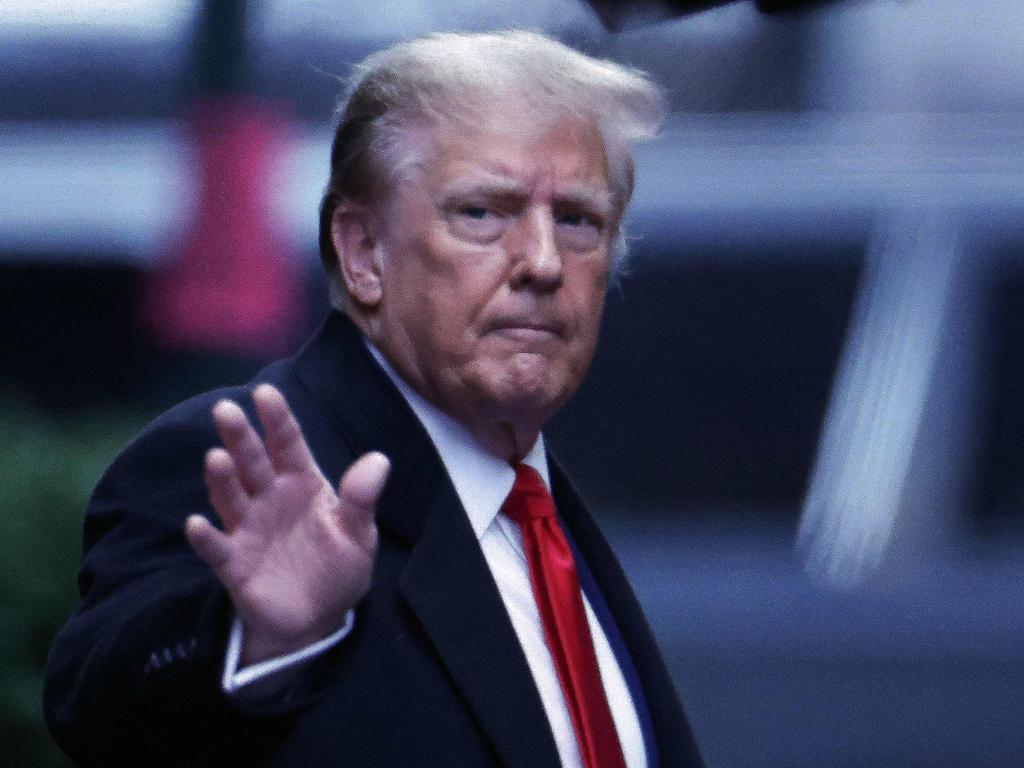

You cannot miss the calculation by Russian leader Vladimir Putin – he is staking his future on Donald Trump becoming US president and abandoning Ukraine given Trump’s outrageous boast that on returning to the White House he will have the war settled “within one day, 24 hours”.